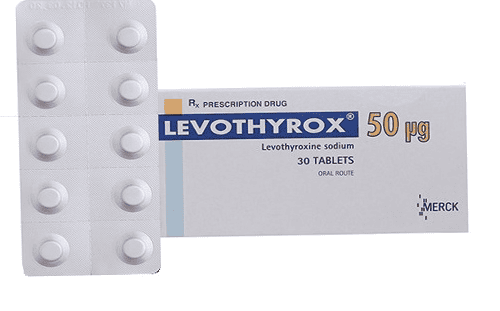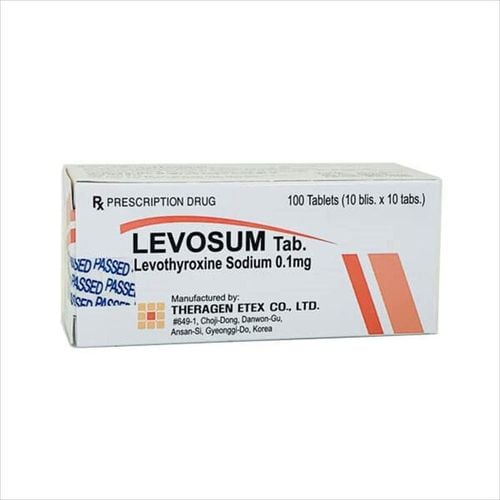This is an automatically translated article.
Tingling in the hands or feet may be temporary but may also be related to nerve damage from a pre-existing medical condition. One of the possible causes is an autoimmune disorder that can cause tingling. This article will provide more information on the causes of tingling in the hands and feet.1. Diabetic Neuropathy
Neuropathy is caused by damage to the nerves. While there are many types of neuropathy, peripheral neuropathy can affect the hands and feet, diabetic neuropathy occurs when nerve damage that accompanies diabetes is caused. This damage can affect the legs and feet, and sometimes the arms and hands.In diabetic neuropathy, nerve damage occurs due to elevated blood sugar levels. In addition to damaging nerves, this disease can also damage the blood vessels that supply the body's nerves. When nerves don't get enough oxygen, they can't function well. Statistics from the National Institute of Diabetes, Digestive and Kidney Diseases estimate that up to half of people with diabetes have peripheral neuropathy.
2. Tingling hands and feet due to vitamin deficiency
Vitamin deficiencies can be caused by not getting enough of a particular vitamin in the diet or by not absorbing it properly. Certain vitamins are important for nerve health. Examples include: Vitamin B12, vitamin B6, vitamin B1, vitamin E, vitamin B9 or folate. Vitamin B12 is considered a necessary source for cells to produce energy. Vitamin B12 is found in animal products such as meat, milk, and eggs. Therefore, vegans may need a vitamin B12 supplement. A deficiency of vitamin B12 in the diet can cause nerve damage that also appears as tingling in the limbs.Plus, we also take vitamin B6 every day because this vitamin cannot be stored in the body. Meat, fish, nuts, legumes, whole grains, non-citrus fruits and potatoes are good sources of vitamin B6. People with B6 deficiency may also experience a rash or cognitive changes.
Vitamin B1 - thiamine, plays a role in nerve impulses and nerve cell repair. Foods such as: Meat, legumes, whole grains and nuts are considered good sources of vitamin B1. People whose diets are high in refined grains may be more susceptible to vitamin B1 deficiency and may cause pain or tingling in the palms or soles of the feet.
Vitamin E deficiency is more likely to be caused by problems absorbing fat in the gut than vitamin E deficiency in the daily diet. Signs of a vitamin E deficiency include tingling in the limbs. Nuts, seeds, vegetable oils and green vegetables are among the best sources of vitamin E.
Folate deficiency can cause pain or tingling in the hands and feet. A 2019 study found that folate deficiency may have a greater effect on people under the age of 40. Good sources of folate or vitamin B9 are found in dark green leafy vegetables, whole grains, beans, peanuts, sunflower seeds, liver, and seafood.
3. Pinched nerve
You can experience nerve compression when there is too much pressure on the nerve from the surrounding tissues. For example, trauma, repetitive movements, and inflammation can cause a nerve to become pinched. Pinched nerves can occur in many areas of the body and can affect the hands or feet, causing tingling, numbness, or pain. A pinched nerve in the lower spine can cause these sensations to spread down the back of the leg and into the foot.4. Wrist tube
Carpal tunnel - a common condition that occurs when the median nerve becomes compressed as it moves through the carpal tunnel. This effect can be caused by trauma, repetitive motion, or inflammation. People with carpal tunnel may feel numbness or tingling in the first four fingers of the hand.5. Kidney failure
Kidney failure occurs when the kidneys no longer function properly according to the body's proper function. Conditions such as high blood pressure and diabetes can lead to kidney failure. When the kidneys are not working properly, fluid and waste products can build up in the body, leading to nerve damage. Tingling caused by kidney failure usually occurs in the legs or feet.6. Pregnancy
The swelling that occurs throughout the body during pregnancy can put pressure on certain nerves in the body. As a result, pregnant women may feel tingling in their hands and tingling in their feet. These symptoms usually go away after pregnancy.7. Drug use
Many drugs can damage nerves, causing a tingling sensation in the limbs. A common side effect of medications used to treat them can be tingling in the hands and feet, such as those used for cancer (chemotherapy) and HIV. Or Other medicines that can cause tingling in the hands and feet include: Heart or blood pressure medicines, such as amiodarone or hydralazine, anti-infectives, such as metronidazole and dapsone, anticonvulsants, such as phenytoin.Autoimmune disorders occur when your immune system mistakenly protects the body from agents that affect the body and will mistakenly attack the body's cells.
8. Rheumatoid Arthritis
Rheumatoid arthritis - an autoimmune condition that causes swelling and pain in the joints, usually in the wrists and hands. But the condition can also affect other parts of the body, including the ankles and feet. The inflammation of rheumatoid arthritis can put pressure on nerves, leading to tingling in the limbs.9. Multiple sclerosis
Multiple sclerosis (MS) - an autoimmune condition in which the immune system attacks the protective covering of nerves - myelin, leading to nerve damage. Feeling numb or tingling in the limbs and face is a common symptom of MS.10. Lupus
Lupus - an autoimmune condition in which the body's immune system attacks the body's own tissues and affects other parts of the body, including the nervous system. Tingling in the hands or feet can be caused by nerves near the lupus site being compressed by the inflammation or swelling caused by lupus.11. Celiac Disease
Celiac disease - autoimmune condition that affects the small intestine. When a person with celiac disease ingests gluten, an autoimmune reaction occurs. Some people with celiac disease may experience symptoms of neuropathy, including tingling in the hands and feet. Symptoms of celiac disease can also occur in people who don't have any digestive symptoms.12. Lyme disease
Lyme disease - bacterial infection transmitted by the bite of an infected flea. If the person is not treated, the infection can begin to affect the nervous system and can cause tingling in the hands and feet.13. Shingles
Shingles or shingles - a painful rash caused by the reactivated varicella - zoster virus, the virus lies dormant in the nerves of people who have had chickenpox. Usually, shingles affects only a small part of one side of the body, which can include the hands, arms, legs, and feet. You may also feel tingling or numbness in the affected area.14. Hepatitis B and C
Hepatitis B and C caused by viruses lead to cirrhosis or liver cancer if not treated promptly and thoroughly. Hepatitis C infection can also cause peripheral neuropathy, although how this happens is largely unknown. In some cases, infection with the hepatitis B or C virus can lead to a condition known as cryoglobulinemia. In this condition, certain proteins in the blood clump together at cold temperatures, causing inflammation. One of the symptoms of cold blood disease is numbness and tingling.15. HIV or AIDS
HIV is caused by a virus that attacks cells of the immune system, increasing the risk of infections as well as certain cancers. Without prompt treatment, the infection can progress to the final stages of HIV infection - AIDS, in which the immune system is severely damaged. HIV can be a risk factor for the nervous system. In some cases, the condition can involve the nerves of the hands and feet and cause tingling, numbness, and pain.16. Hansen's disease (leprosy)
Leprosy or Hansen's disease - a bacterial infection that can affect the skin, nerves, and respiratory tract. When the nervous system is affected, the person may feel tingling or numbness in the affected body part, including the hands and feet.17. Hypothyroidism
Hypothyroidism occurs when the thyroid gland does not produce enough thyroid hormone for the body. Although uncommon, untreated severe hypothyroidism can sometimes cause nerve damage, resulting in tingling or numbness. The exact mechanism of this disease is still not fully understood.18. Toxin exposure
Many different toxins and chemicals are considered neurotoxins. Therefore, they can harm the nervous system. Direct exposure to this element can cause a variety of symptoms, including tingling in the hands or feet or tingling all over the body. Some examples of toxins include: Heavy metals, such as mercury, lead and arsenic, acrylamide, a chemical used for many industrial purposes, ethylene glycol, found in antifreeze, hexa carbons, can be found in some solvents and glues19. Fibromyalgia
Fibromyalgia includes a group of symptoms, such as: widespread muscle pain, fatigue, and mood swings. Some people with fibromyalgia may experience other symptoms such as headaches, gastrointestinal problems, and tingling in the limbs. The cause of fibromyalgia is currently unknown.20. Ganglion cyst
Ganglion cyst - a fluid-filled tumor that often appears in the joints, especially the wrist. Ganglion cysts can put pressure on nearby nerves, leading to a tingling sensation in the hand or fingers, even though the cyst itself is painless. The cause of these cysts is currently not fully understood, although joint irritation may play a role in the condition.21. Cervical spondylosis
Cervical spondylosis occurs due to age-related changes in the cervical spine. These changes can include things like hernias, degeneration, and osteoarthritis. Sometimes the changes that cause cervical spondylosis can put pressure on the spinal cord, which can lead to worsening neck pain as well as symptoms such as tingling in the limbs or numbness in the limbs.22. Raynaud's phenomenon
Raynaud's phenomenon affects blood flow to the arms and legs throughout the body. The blood vessels in these areas shrink in extreme response to cold temperatures or stress. This decrease in blood flow can cause numbness or tingling in the limbs, especially in the fingers and toes.23. Mental illness related to alcohol use
Long-term alcohol abuse can lead to the development of peripheral neuropathy, which can lead to tingling in the hands and feet. The disease progressed gradually. The mechanism that causes it is unknown, although vitamin or nutritional deficiencies may play a role.24. Vasculitis
Vasculitis occurs when a person's blood vessels become inflamed. There are many types of vasculitis, but to date the pathophysiology of vasculitis has not been clearly understood. Because inflammation can lead to changes in blood vessels, blood flow to other sites in the body that are also affected can be limited. In some types of vasculitis, this can lead to neurological problems, such as tingling, numbness, and weakness.25. Guillain-Barré . Syndrome
Guillain-Barré syndrome - a rare nervous system condition in which your immune system attacks part of your body's nervous system. The exact cause of Guillain-Barre syndrome is currently unknown. Guillain-Barré syndrome can sometimes occur after an illness. Unexplained tingling and possibly pain in the hands and feet may be one of the first symptoms of this syndrome.Please dial HOTLINE for more information or register for an appointment HERE. Download MyVinmec app to make appointments faster and to manage your bookings easily.













